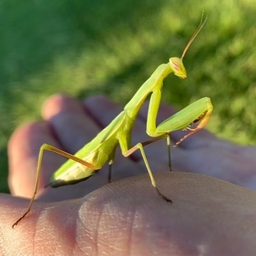
Articles
-
Mar 6, 2025 |
onnaturemagazine.com | Caroline M. Schultz |Brian Banks |Jade Prévost-Manuel |Conor Mihell
A Time of Change. By Caroline SchultzThe annual migration of common green darner dragonflies is less understood than that of monarch butterflies, but scientists are starting to discover just how epic these insects’ journeys are. By Brian BanksWith threats to forests multiplying, Ontario researchers are seeking ways to keep the woods resilient. Can forests adapt in time to stay ahead of climate change?
-
Mar 4, 2025 |
canadiangeographic.ca | Brian Banks
It started, ironically, with an American. In January 1975, New York State senator Bernard Smith, a noted environmental champion, introduced a bill to officially recognize a new state animal: the beaver. Prompted by a local newspaper columnist asking if Canada had a more deserving claim, Sean O’Sullivan, a 23-year-old Conservative member of Parliament from Hamilton sprang into action.
-
Feb 3, 2025 |
canadiangeographic.ca | Brian Banks
Shannon Baker stops mid-sentence and points. “There’s a red-tailed hawk,” she says. We watch the raptor cross low over the slow-moving river 50 metres to our left. It lands briefly in the thin, autumn-hued cover of bushes, plant stalks and sparse, bare trees on the north bank, then lifts off again. “There he goes,” she says.
-
Nov 26, 2024 |
onnaturemagazine.com | Caroline M. Schultz |Brian Banks |Ian Coutts |Julia Zarankin
All our relations. By Caroline SchultzThe environmental benefits of wind energy come with a significant downside: turbines kill wildlife, especially migratory bats. Solutions exist, if wind-farm operators choose to embrace them. By Brian BanksDam-building is how beavers engineer their own habitat, but their labours can cause trouble for their human neighbours. How can these species get along? By Ian CouttsBirds that stay in Ontario through the winter have adapted to cold temperatures in amazing ways.
-
Nov 19, 2024 |
corporateknights.com | Brian Banks
By the time the ball drops on New Year’s Eve, 2024 will have been the hottest year in recorded history. But it likely won’t hold that title for long. Extreme heat is an increasingly persistent reality for most of the world’s population. According to a study published this past spring, there were 76 extreme heat waves worldwide in the previous year, with more than three-quarters of the global population experiencing at least 31 days of atypical warmth as a result.
Try JournoFinder For Free
Search and contact over 1M+ journalist profiles, browse 100M+ articles, and unlock powerful PR tools.
Start Your 7-Day Free Trial →X (formerly Twitter)
- Followers
- 0
- Tweets
- 11
- DMs Open
- Yes